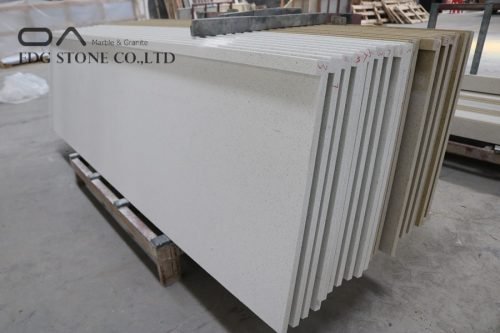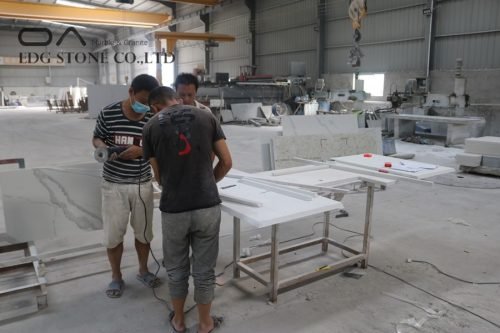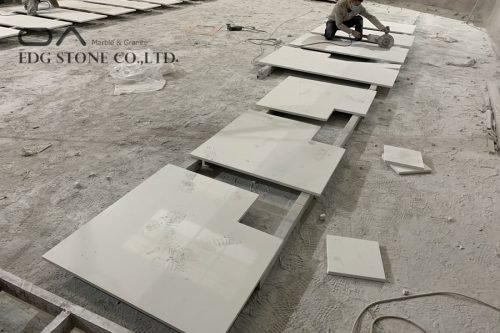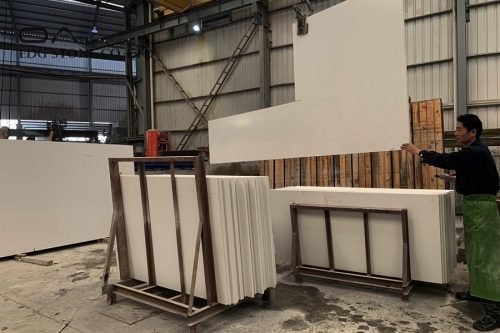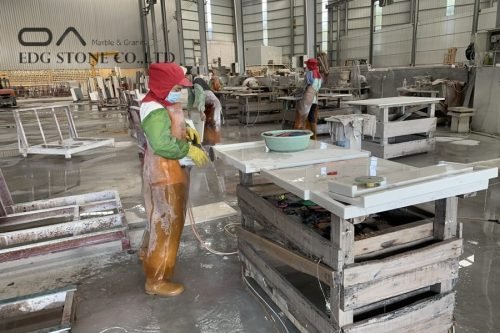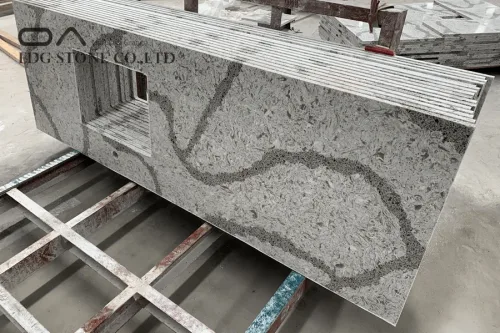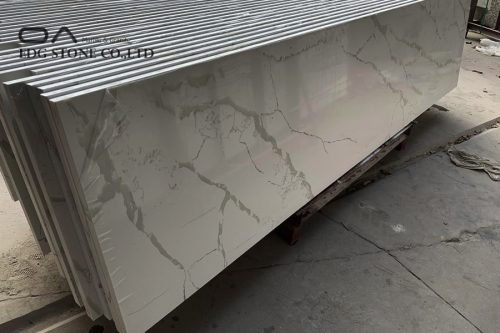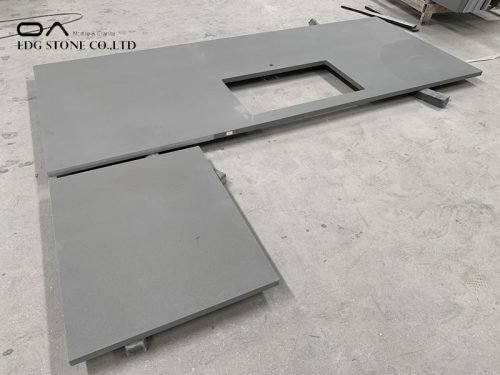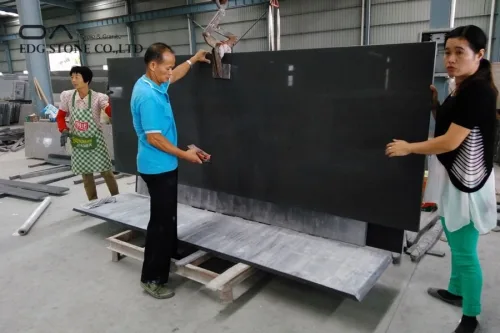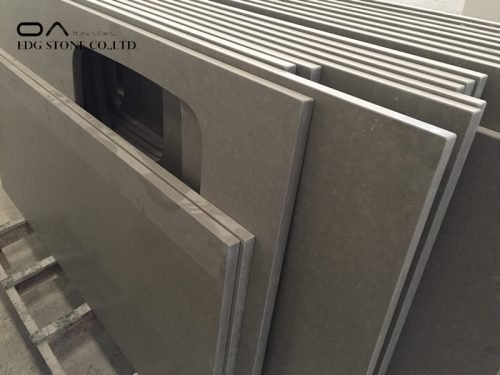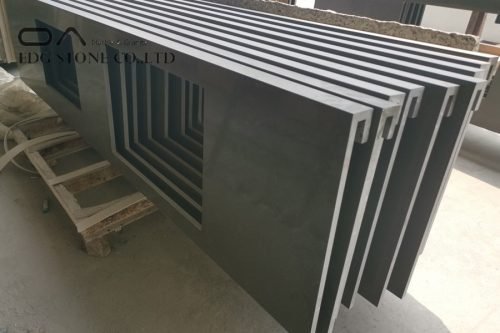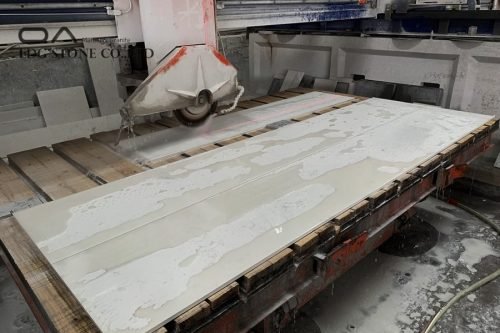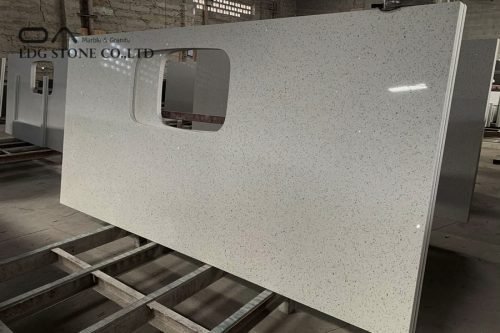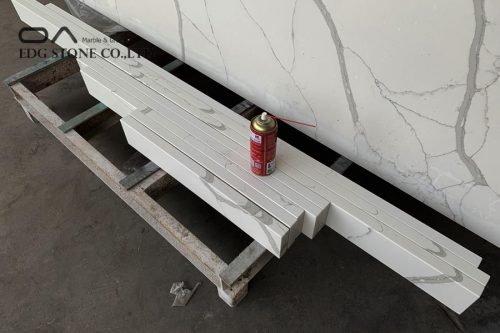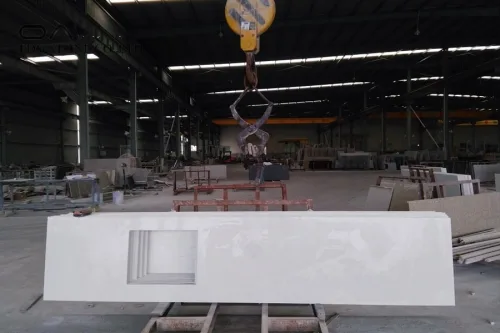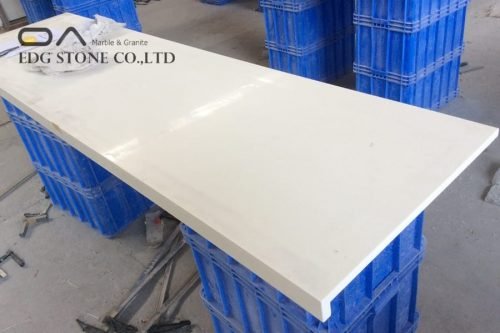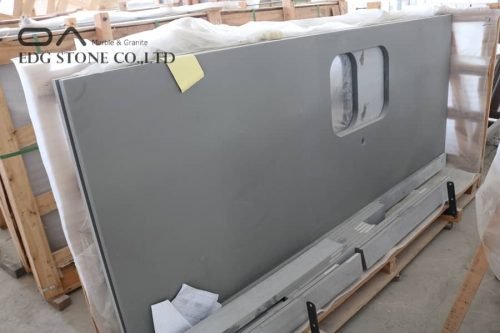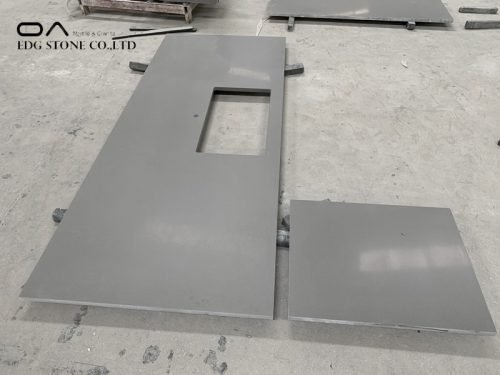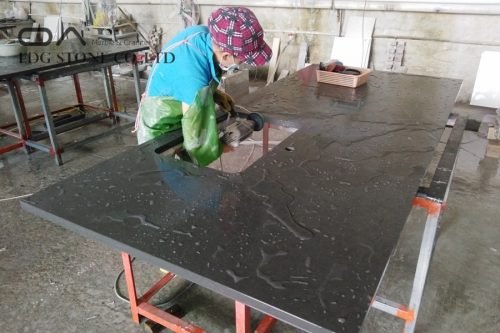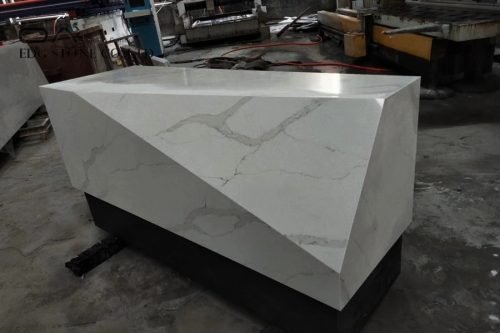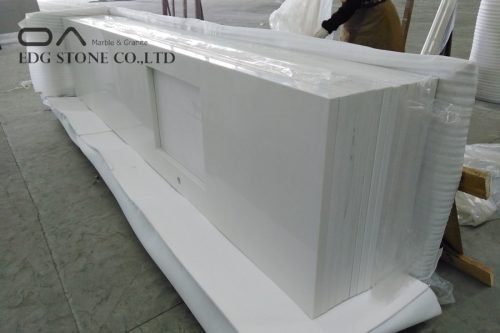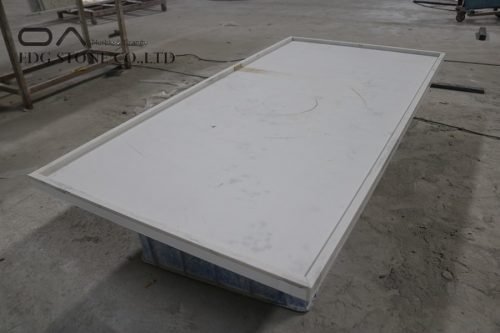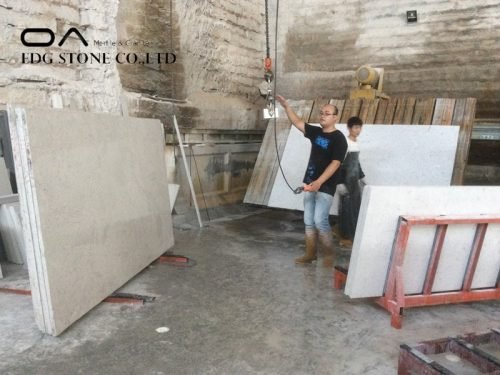 The Ikea quartz countertops cost made of engineered quartz (not to be confused with Quartzite, another appealing natural stone used as counters) is a manmade product created mostly from natural materials. It’s made of 90% to 94% ground quartz and 6% to 10% resins and pigments that are combined into durable and nonporous slabs. The strength of quartz, even in a manufactured form, makes it naturally resistant to abrasion, scratches, dents, and even acids without the need for sealants. And the environmental impact of manufactured quartz is low: Quartz is an abundant material and the finished product is nontoxic and nonallergenic and will last a lifetime, reducing the need for replacement.
The Ikea quartz countertops cost made of engineered quartz (not to be confused with Quartzite, another appealing natural stone used as counters) is a manmade product created mostly from natural materials. It’s made of 90% to 94% ground quartz and 6% to 10% resins and pigments that are combined into durable and nonporous slabs. The strength of quartz, even in a manufactured form, makes it naturally resistant to abrasion, scratches, dents, and even acids without the need for sealants. And the environmental impact of manufactured quartz is low: Quartz is an abundant material and the finished product is nontoxic and nonallergenic and will last a lifetime, reducing the need for replacement. The ikea quartz countertops Canada made of engineered quartz (not to be confused with Quartzite, another appealing natural stone used as counters) is a manmade product created mostly from natural materials. It’s made of 90% to 94% ground quartz and 6% to 10% resins and pigments that are combined into durable and nonporous slabs. The strength of quartz, even in a manufactured form, makes it naturally resistant to abrasion, scratches, dents, and even acids without the need for sealants. And the environmental impact of manufactured quartz is low: Quartz is an abundant material and the finished product is nontoxic and nonallergenic and will last a lifetime, reducing the need for replacement.
The ikea quartz countertops Canada made of engineered quartz (not to be confused with Quartzite, another appealing natural stone used as counters) is a manmade product created mostly from natural materials. It’s made of 90% to 94% ground quartz and 6% to 10% resins and pigments that are combined into durable and nonporous slabs. The strength of quartz, even in a manufactured form, makes it naturally resistant to abrasion, scratches, dents, and even acids without the need for sealants. And the environmental impact of manufactured quartz is low: Quartz is an abundant material and the finished product is nontoxic and nonallergenic and will last a lifetime, reducing the need for replacement. The Iced white quartz kitchen made of engineered quartz (not to be confused with Quartzite, another appealing natural stone used as counters) is a manmade product created mostly from natural materials. It’s made of 90% to 94% ground quartz and 6% to 10% resins and pigments that are combined into durable and nonporous slabs. The strength of quartz, even in a manufactured form, makes it naturally resistant to abrasion, scratches, dents, and even acids without the need for sealants. And the environmental impact of manufactured quartz is low: Quartz is an abundant material and the finished product is nontoxic and nonallergenic and will last a lifetime, reducing the need for replacement.
The Iced white quartz kitchen made of engineered quartz (not to be confused with Quartzite, another appealing natural stone used as counters) is a manmade product created mostly from natural materials. It’s made of 90% to 94% ground quartz and 6% to 10% resins and pigments that are combined into durable and nonporous slabs. The strength of quartz, even in a manufactured form, makes it naturally resistant to abrasion, scratches, dents, and even acids without the need for sealants. And the environmental impact of manufactured quartz is low: Quartz is an abundant material and the finished product is nontoxic and nonallergenic and will last a lifetime, reducing the need for replacement.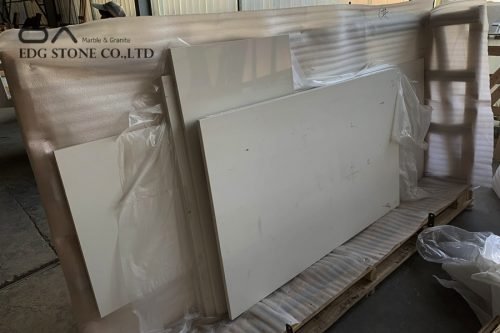
 The iced white quartz countertops made of engineered quartz (not to be confused with Quartzite, another appealing natural stone used as counters) is a manmade product created mostly from natural materials. It’s made of 90% to 94% ground quartz and 6% to 10% resins and pigments that are combined into durable and nonporous slabs. The strength of quartz, even in a manufactured form, makes it naturally resistant to abrasion, scratches, dents, and even acids without the need for sealants. And the environmental impact of manufactured quartz is low: Quartz is an abundant material and the finished product is nontoxic and nonallergenic and will last a lifetime, reducing the need for replacement.
The iced white quartz countertops made of engineered quartz (not to be confused with Quartzite, another appealing natural stone used as counters) is a manmade product created mostly from natural materials. It’s made of 90% to 94% ground quartz and 6% to 10% resins and pigments that are combined into durable and nonporous slabs. The strength of quartz, even in a manufactured form, makes it naturally resistant to abrasion, scratches, dents, and even acids without the need for sealants. And the environmental impact of manufactured quartz is low: Quartz is an abundant material and the finished product is nontoxic and nonallergenic and will last a lifetime, reducing the need for replacement.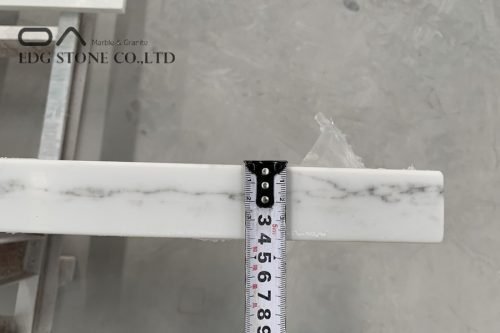
 The i chipped my quartz countertop made of engineered quartz (not to be confused with Quartzite, another appealing natural stone used as counters) is a manmade product created mostly from natural materials. It’s made of 90% to 94% ground quartz and 6% to 10% resins and pigments that are combined into durable and nonporous slabs. The strength of quartz, even in a manufactured form, makes it naturally resistant to abrasion, scratches, dents, and even acids without the need for sealants. And the environmental impact of manufactured quartz is low: Quartz is an abundant material and the finished product is nontoxic and nonallergenic and will last a lifetime, reducing the need for replacement.
The i chipped my quartz countertop made of engineered quartz (not to be confused with Quartzite, another appealing natural stone used as counters) is a manmade product created mostly from natural materials. It’s made of 90% to 94% ground quartz and 6% to 10% resins and pigments that are combined into durable and nonporous slabs. The strength of quartz, even in a manufactured form, makes it naturally resistant to abrasion, scratches, dents, and even acids without the need for sealants. And the environmental impact of manufactured quartz is low: Quartz is an abundant material and the finished product is nontoxic and nonallergenic and will last a lifetime, reducing the need for replacement. The home depot quartz countertops made of engineered quartz (not to be confused with Quartzite, another appealing natural stone used as counters) is a manmade product created mostly from natural materials. It’s made of 90% to 94% ground quartz and 6% to 10% resins and pigments that are combined into durable and nonporous slabs. The strength of quartz, even in a manufactured form, makes it naturally resistant to abrasion, scratches, dents, and even acids without the need for sealants. And the environmental impact of manufactured quartz is low: Quartz is an abundant material and the finished product is nontoxic and nonallergenic and will last a lifetime, reducing the need for replacement.
The home depot quartz countertops made of engineered quartz (not to be confused with Quartzite, another appealing natural stone used as counters) is a manmade product created mostly from natural materials. It’s made of 90% to 94% ground quartz and 6% to 10% resins and pigments that are combined into durable and nonporous slabs. The strength of quartz, even in a manufactured form, makes it naturally resistant to abrasion, scratches, dents, and even acids without the need for sealants. And the environmental impact of manufactured quartz is low: Quartz is an abundant material and the finished product is nontoxic and nonallergenic and will last a lifetime, reducing the need for replacement.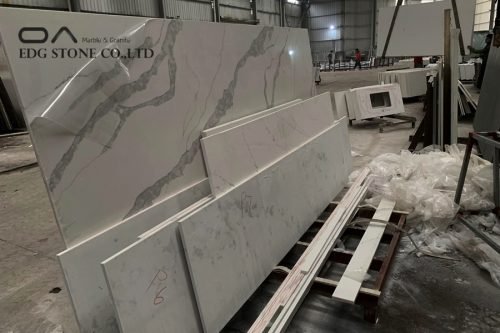
 The home depot quartz countertop sale made of engineered quartz (not to be confused with Quartzite, another appealing natural stone used as counters) is a manmade product created mostly from natural materials. It’s made of 90% to 94% ground quartz and 6% to 10% resins and pigments that are combined into durable and nonporous slabs. The strength of quartz, even in a manufactured form, makes it naturally resistant to abrasion, scratches, dents, and even acids without the need for sealants. And the environmental impact of manufactured quartz is low: Quartz is an abundant material and the finished product is nontoxic and nonallergenic and will last a lifetime, reducing the need for replacement.
The home depot quartz countertop sale made of engineered quartz (not to be confused with Quartzite, another appealing natural stone used as counters) is a manmade product created mostly from natural materials. It’s made of 90% to 94% ground quartz and 6% to 10% resins and pigments that are combined into durable and nonporous slabs. The strength of quartz, even in a manufactured form, makes it naturally resistant to abrasion, scratches, dents, and even acids without the need for sealants. And the environmental impact of manufactured quartz is low: Quartz is an abundant material and the finished product is nontoxic and nonallergenic and will last a lifetime, reducing the need for replacement.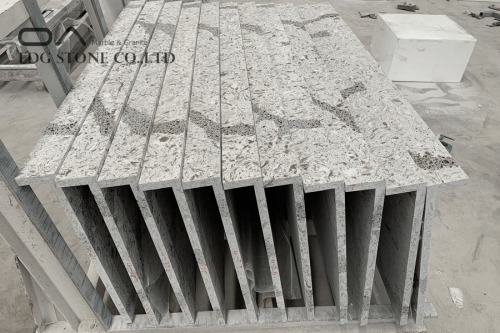
 The home depot quartz countertop prices made of engineered quartz (not to be confused with Quartzite, another appealing natural stone used as counters) is a manmade product created mostly from natural materials. It’s made of 90% to 94% ground quartz and 6% to 10% resins and pigments that are combined into durable and nonporous slabs. The strength of quartz, even in a manufactured form, makes it naturally resistant to abrasion, scratches, dents, and even acids without the need for sealants. And the environmental impact of manufactured quartz is low: Quartz is an abundant material and the finished product is nontoxic and nonallergenic and will last a lifetime, reducing the need for replacement.
The home depot quartz countertop prices made of engineered quartz (not to be confused with Quartzite, another appealing natural stone used as counters) is a manmade product created mostly from natural materials. It’s made of 90% to 94% ground quartz and 6% to 10% resins and pigments that are combined into durable and nonporous slabs. The strength of quartz, even in a manufactured form, makes it naturally resistant to abrasion, scratches, dents, and even acids without the need for sealants. And the environmental impact of manufactured quartz is low: Quartz is an abundant material and the finished product is nontoxic and nonallergenic and will last a lifetime, reducing the need for replacement.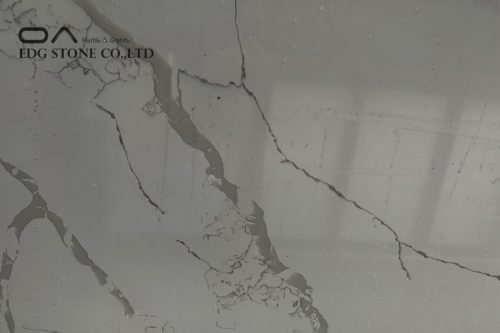
 The hanstone quartz countertops made of engineered quartz (not to be confused with Quartzite, another appealing natural stone used as counters) is a manmade product created mostly from natural materials. It’s made of 90% to 94% ground quartz and 6% to 10% resins and pigments that are combined into durable and nonporous slabs. The strength of quartz, even in a manufactured form, makes it naturally resistant to abrasion, scratches, dents, and even acids without the need for sealants. And the environmental impact of manufactured quartz is low: Quartz is an abundant material and the finished product is nontoxic and nonallergenic and will last a lifetime, reducing the need for replacement.
The hanstone quartz countertops made of engineered quartz (not to be confused with Quartzite, another appealing natural stone used as counters) is a manmade product created mostly from natural materials. It’s made of 90% to 94% ground quartz and 6% to 10% resins and pigments that are combined into durable and nonporous slabs. The strength of quartz, even in a manufactured form, makes it naturally resistant to abrasion, scratches, dents, and even acids without the need for sealants. And the environmental impact of manufactured quartz is low: Quartz is an abundant material and the finished product is nontoxic and nonallergenic and will last a lifetime, reducing the need for replacement. The grey quartz kitchen countertops made of engineered quartz (not to be confused with Quartzite, another appealing natural stone used as counters) is a manmade product created mostly from natural materials. It’s made of 90% to 94% ground quartz and 6% to 10% resins and pigments that are combined into durable and nonporous slabs. The strength of quartz, even in a manufactured form, makes it naturally resistant to abrasion, scratches, dents, and even acids without the need for sealants. And the environmental impact of manufactured quartz is low: Quartz is an abundant material and the finished product is nontoxic and nonallergenic and will last a lifetime, reducing the need for replacement.
The grey quartz kitchen countertops made of engineered quartz (not to be confused with Quartzite, another appealing natural stone used as counters) is a manmade product created mostly from natural materials. It’s made of 90% to 94% ground quartz and 6% to 10% resins and pigments that are combined into durable and nonporous slabs. The strength of quartz, even in a manufactured form, makes it naturally resistant to abrasion, scratches, dents, and even acids without the need for sealants. And the environmental impact of manufactured quartz is low: Quartz is an abundant material and the finished product is nontoxic and nonallergenic and will last a lifetime, reducing the need for replacement.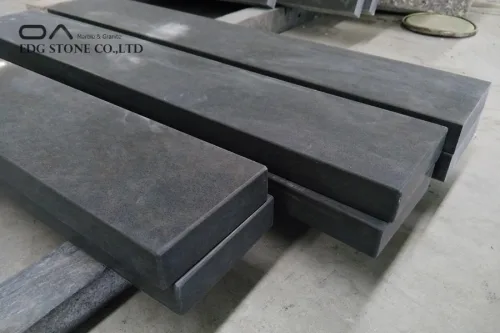
 The grey quartz countertops white cabinets made of engineered quartz (not to be confused with Quartzite, another appealing natural stone used as counters) is a manmade product created mostly from natural materials. It’s made of 90% to 94% ground quartz and 6% to 10% resins and pigments that are combined into durable and nonporous slabs. The strength of quartz, even in a manufactured form, makes it naturally resistant to abrasion, scratches, dents, and even acids without the need for sealants. And the environmental impact of manufactured quartz is low: Quartz is an abundant material and the finished product is nontoxic and nonallergenic and will last a lifetime, reducing the need for replacement.
The grey quartz countertops white cabinets made of engineered quartz (not to be confused with Quartzite, another appealing natural stone used as counters) is a manmade product created mostly from natural materials. It’s made of 90% to 94% ground quartz and 6% to 10% resins and pigments that are combined into durable and nonporous slabs. The strength of quartz, even in a manufactured form, makes it naturally resistant to abrasion, scratches, dents, and even acids without the need for sealants. And the environmental impact of manufactured quartz is low: Quartz is an abundant material and the finished product is nontoxic and nonallergenic and will last a lifetime, reducing the need for replacement. The grey quartz countertops made of engineered quartz (not to be confused with Quartzite, another appealing natural stone used as counters) is a manmade product created mostly from natural materials. It’s made of 90% to 94% ground quartz and 6% to 10% resins and pigments that are combined into durable and nonporous slabs. The strength of quartz, even in a manufactured form, makes it naturally resistant to abrasion, scratches, dents, and even acids without the need for sealants. And the environmental impact of manufactured quartz is low: Quartz is an abundant material and the finished product is nontoxic and nonallergenic and will last a lifetime, reducing the need for replacement.
The grey quartz countertops made of engineered quartz (not to be confused with Quartzite, another appealing natural stone used as counters) is a manmade product created mostly from natural materials. It’s made of 90% to 94% ground quartz and 6% to 10% resins and pigments that are combined into durable and nonporous slabs. The strength of quartz, even in a manufactured form, makes it naturally resistant to abrasion, scratches, dents, and even acids without the need for sealants. And the environmental impact of manufactured quartz is low: Quartz is an abundant material and the finished product is nontoxic and nonallergenic and will last a lifetime, reducing the need for replacement.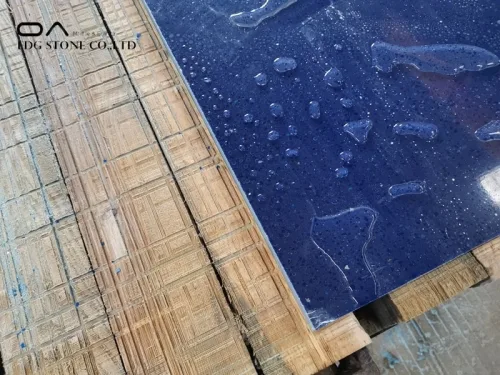
 The green quartz countertops made of engineered quartz (not to be confused with Quartzite, another appealing natural stone used as counters) is a manmade product created mostly from natural materials. It’s made of 90% to 94% ground quartz and 6% to 10% resins and pigments that are combined into durable and nonporous slabs. The strength of quartz, even in a manufactured form, makes it naturally resistant to abrasion, scratches, dents, and even acids without the need for sealants. And the environmental impact of manufactured quartz is low: Quartz is an abundant material and the finished product is nontoxic and nonallergenic and will last a lifetime, reducing the need for replacement.
The green quartz countertops made of engineered quartz (not to be confused with Quartzite, another appealing natural stone used as counters) is a manmade product created mostly from natural materials. It’s made of 90% to 94% ground quartz and 6% to 10% resins and pigments that are combined into durable and nonporous slabs. The strength of quartz, even in a manufactured form, makes it naturally resistant to abrasion, scratches, dents, and even acids without the need for sealants. And the environmental impact of manufactured quartz is low: Quartz is an abundant material and the finished product is nontoxic and nonallergenic and will last a lifetime, reducing the need for replacement. The gray quartz countertops kitchen made of engineered quartz (not to be confused with Quartzite, another appealing natural stone used as counters) is a manmade product created mostly from natural materials. It’s made of 90% to 94% ground quartz and 6% to 10% resins and pigments that are combined into durable and nonporous slabs. The strength of quartz, even in a manufactured form, makes it naturally resistant to abrasion, scratches, dents, and even acids without the need for sealants. And the environmental impact of manufactured quartz is low: Quartz is an abundant material and the finished product is nontoxic and nonallergenic and will last a lifetime, reducing the need for replacement.
The gray quartz countertops kitchen made of engineered quartz (not to be confused with Quartzite, another appealing natural stone used as counters) is a manmade product created mostly from natural materials. It’s made of 90% to 94% ground quartz and 6% to 10% resins and pigments that are combined into durable and nonporous slabs. The strength of quartz, even in a manufactured form, makes it naturally resistant to abrasion, scratches, dents, and even acids without the need for sealants. And the environmental impact of manufactured quartz is low: Quartz is an abundant material and the finished product is nontoxic and nonallergenic and will last a lifetime, reducing the need for replacement. The gray quartz countertops made of engineered quartz (not to be confused with Quartzite, another appealing natural stone used as counters) is a manmade product created mostly from natural materials. It’s made of 90% to 94% ground quartz and 6% to 10% resins and pigments that are combined into durable and nonporous slabs. The strength of quartz, even in a manufactured form, makes it naturally resistant to abrasion, scratches, dents, and even acids without the need for sealants. And the environmental impact of manufactured quartz is low: Quartz is an abundant material and the finished product is nontoxic and nonallergenic and will last a lifetime, reducing the need for replacement.
The gray quartz countertops made of engineered quartz (not to be confused with Quartzite, another appealing natural stone used as counters) is a manmade product created mostly from natural materials. It’s made of 90% to 94% ground quartz and 6% to 10% resins and pigments that are combined into durable and nonporous slabs. The strength of quartz, even in a manufactured form, makes it naturally resistant to abrasion, scratches, dents, and even acids without the need for sealants. And the environmental impact of manufactured quartz is low: Quartz is an abundant material and the finished product is nontoxic and nonallergenic and will last a lifetime, reducing the need for replacement. The fake quartz countertops made of engineered quartz (not to be confused with Quartzite, another appealing natural stone used as counters) is a manmade product created mostly from natural materials. It’s made of 90% to 94% ground quartz and 6% to 10% resins and pigments that are combined into durable and nonporous slabs. The strength of quartz, even in a manufactured form, makes it naturally resistant to abrasion, scratches, dents, and even acids without the need for sealants. And the environmental impact of manufactured quartz is low: Quartz is an abundant material and the finished product is nontoxic and nonallergenic and will last a lifetime, reducing the need for replacement.
The fake quartz countertops made of engineered quartz (not to be confused with Quartzite, another appealing natural stone used as counters) is a manmade product created mostly from natural materials. It’s made of 90% to 94% ground quartz and 6% to 10% resins and pigments that are combined into durable and nonporous slabs. The strength of quartz, even in a manufactured form, makes it naturally resistant to abrasion, scratches, dents, and even acids without the need for sealants. And the environmental impact of manufactured quartz is low: Quartz is an abundant material and the finished product is nontoxic and nonallergenic and will last a lifetime, reducing the need for replacement.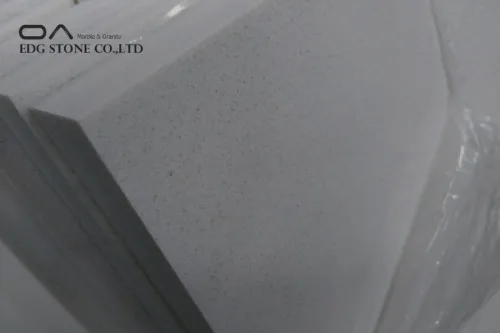
 The everest quartz countertop made of engineered quartz (not to be confused with Quartzite, another appealing natural stone used as counters) is a manmade product created mostly from natural materials. It’s made of 90% to 94% ground quartz and 6% to 10% resins and pigments that are combined into durable and nonporous slabs. The strength of quartz, even in a manufactured form, makes it naturally resistant to abrasion, scratches, dents, and even acids without the need for sealants. And the environmental impact of manufactured quartz is low: Quartz is an abundant material and the finished product is nontoxic and nonallergenic and will last a lifetime, reducing the need for replacement.
The everest quartz countertop made of engineered quartz (not to be confused with Quartzite, another appealing natural stone used as counters) is a manmade product created mostly from natural materials. It’s made of 90% to 94% ground quartz and 6% to 10% resins and pigments that are combined into durable and nonporous slabs. The strength of quartz, even in a manufactured form, makes it naturally resistant to abrasion, scratches, dents, and even acids without the need for sealants. And the environmental impact of manufactured quartz is low: Quartz is an abundant material and the finished product is nontoxic and nonallergenic and will last a lifetime, reducing the need for replacement.
 The Edges laminate quartz countertops made of engineered quartz (not to be confused with Quartzite, another appealing natural stone used as counters) is a manmade product created mostly from natural materials. It’s made of 90% to 94% ground quartz and 6% to 10% resins and pigments that are combined into durable and nonporous slabs. The strength of quartz, even in a manufactured form, makes it naturally resistant to abrasion, scratches, dents, and even acids without the need for sealants. And the environmental impact of manufactured quartz is low: Quartz is an abundant material and the finished product is nontoxic and nonallergenic and will last a lifetime, reducing the need for replacement.
The Edges laminate quartz countertops made of engineered quartz (not to be confused with Quartzite, another appealing natural stone used as counters) is a manmade product created mostly from natural materials. It’s made of 90% to 94% ground quartz and 6% to 10% resins and pigments that are combined into durable and nonporous slabs. The strength of quartz, even in a manufactured form, makes it naturally resistant to abrasion, scratches, dents, and even acids without the need for sealants. And the environmental impact of manufactured quartz is low: Quartz is an abundant material and the finished product is nontoxic and nonallergenic and will last a lifetime, reducing the need for replacement.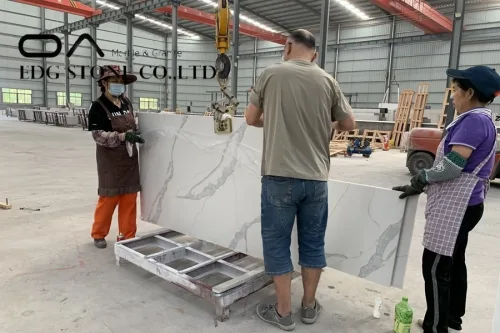
 The edges 4 cm quartz countertop made of engineered quartz (not to be confused with Quartzite, another appealing natural stone used as counters) is a manmade product created mostly from natural materials. It’s made of 90% to 94% ground quartz and 6% to 10% resins and pigments that are combined into durable and nonporous slabs. The strength of quartz, even in a manufactured form, makes it naturally resistant to abrasion, scratches, dents, and even acids without the need for sealants. And the environmental impact of manufactured quartz is low: Quartz is an abundant material and the finished product is nontoxic and nonallergenic and will last a lifetime, reducing the need for replacement.
The edges 4 cm quartz countertop made of engineered quartz (not to be confused with Quartzite, another appealing natural stone used as counters) is a manmade product created mostly from natural materials. It’s made of 90% to 94% ground quartz and 6% to 10% resins and pigments that are combined into durable and nonporous slabs. The strength of quartz, even in a manufactured form, makes it naturally resistant to abrasion, scratches, dents, and even acids without the need for sealants. And the environmental impact of manufactured quartz is low: Quartz is an abundant material and the finished product is nontoxic and nonallergenic and will last a lifetime, reducing the need for replacement.
 The dupont quartz countertops made of engineered quartz (not to be confused with Quartzite, another appealing natural stone used as counters) is a manmade product created mostly from natural materials. It’s made of 90% to 94% ground quartz and 6% to 10% resins and pigments that are combined into durable and nonporous slabs. The strength of quartz, even in a manufactured form, makes it naturally resistant to abrasion, scratches, dents, and even acids without the need for sealants. And the environmental impact of manufactured quartz is low: Quartz is an abundant material and the finished product is nontoxic and nonallergenic and will last a lifetime, reducing the need for replacement.
The dupont quartz countertops made of engineered quartz (not to be confused with Quartzite, another appealing natural stone used as counters) is a manmade product created mostly from natural materials. It’s made of 90% to 94% ground quartz and 6% to 10% resins and pigments that are combined into durable and nonporous slabs. The strength of quartz, even in a manufactured form, makes it naturally resistant to abrasion, scratches, dents, and even acids without the need for sealants. And the environmental impact of manufactured quartz is low: Quartz is an abundant material and the finished product is nontoxic and nonallergenic and will last a lifetime, reducing the need for replacement. The dark quartz countertops made of engineered quartz (not to be confused with Quartzite, another appealing natural stone used as counters) is a manmade product created mostly from natural materials. It’s made of 90% to 94% ground quartz and 6% to 10% resins and pigments that are combined into durable and nonporous slabs. The strength of quartz, even in a manufactured form, makes it naturally resistant to abrasion, scratches, dents, and even acids without the need for sealants. And the environmental impact of manufactured quartz is low: Quartz is an abundant material and the finished product is nontoxic and nonallergenic and will last a lifetime, reducing the need for replacement.
The dark quartz countertops made of engineered quartz (not to be confused with Quartzite, another appealing natural stone used as counters) is a manmade product created mostly from natural materials. It’s made of 90% to 94% ground quartz and 6% to 10% resins and pigments that are combined into durable and nonporous slabs. The strength of quartz, even in a manufactured form, makes it naturally resistant to abrasion, scratches, dents, and even acids without the need for sealants. And the environmental impact of manufactured quartz is low: Quartz is an abundant material and the finished product is nontoxic and nonallergenic and will last a lifetime, reducing the need for replacement. The dark grey quartz countertops made of engineered quartz (not to be confused with Quartzite, another appealing natural stone used as counters) is a manmade product created mostly from natural materials. It’s made of 90% to 94% ground quartz and 6% to 10% resins and pigments that are combined into durable and nonporous slabs. The strength of quartz, even in a manufactured form, makes it naturally resistant to abrasion, scratches, dents, and even acids without the need for sealants. And the environmental impact of manufactured quartz is low: Quartz is an abundant material and the finished product is nontoxic and nonallergenic and will last a lifetime, reducing the need for replacement.
The dark grey quartz countertops made of engineered quartz (not to be confused with Quartzite, another appealing natural stone used as counters) is a manmade product created mostly from natural materials. It’s made of 90% to 94% ground quartz and 6% to 10% resins and pigments that are combined into durable and nonporous slabs. The strength of quartz, even in a manufactured form, makes it naturally resistant to abrasion, scratches, dents, and even acids without the need for sealants. And the environmental impact of manufactured quartz is low: Quartz is an abundant material and the finished product is nontoxic and nonallergenic and will last a lifetime, reducing the need for replacement. The dark gray quartz countertops made of engineered quartz (not to be confused with Quartzite, another appealing natural stone used as counters) is a manmade product created mostly from natural materials. It’s made of 90% to 94% ground quartz and 6% to 10% resins and pigments that are combined into durable and nonporous slabs. The strength of quartz, even in a manufactured form, makes it naturally resistant to abrasion, scratches, dents, and even acids without the need for sealants. And the environmental impact of manufactured quartz is low: Quartz is an abundant material and the finished product is nontoxic and nonallergenic and will last a lifetime, reducing the need for replacement.
The dark gray quartz countertops made of engineered quartz (not to be confused with Quartzite, another appealing natural stone used as counters) is a manmade product created mostly from natural materials. It’s made of 90% to 94% ground quartz and 6% to 10% resins and pigments that are combined into durable and nonporous slabs. The strength of quartz, even in a manufactured form, makes it naturally resistant to abrasion, scratches, dents, and even acids without the need for sealants. And the environmental impact of manufactured quartz is low: Quartz is an abundant material and the finished product is nontoxic and nonallergenic and will last a lifetime, reducing the need for replacement.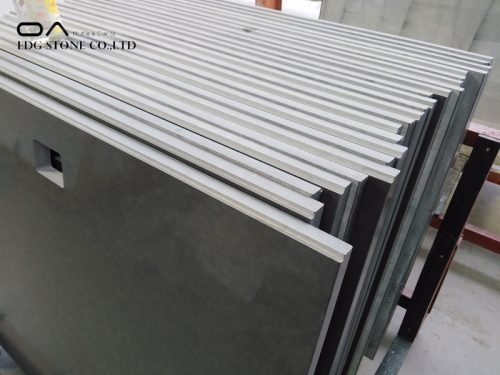
 The custom quartz countertop made of engineered quartz (not to be confused with Quartzite, another appealing natural stone used as counters) is a manmade product created mostly from natural materials. It’s made of 90% to 94% ground quartz and 6% to 10% resins and pigments that are combined into durable and nonporous slabs. The strength of quartz, even in a manufactured form, makes it naturally resistant to abrasion, scratches, dents, and even acids without the need for sealants. And the environmental impact of manufactured quartz is low: Quartz is an abundant material and the finished product is nontoxic and nonallergenic and will last a lifetime, reducing the need for replacement.
The custom quartz countertop made of engineered quartz (not to be confused with Quartzite, another appealing natural stone used as counters) is a manmade product created mostly from natural materials. It’s made of 90% to 94% ground quartz and 6% to 10% resins and pigments that are combined into durable and nonporous slabs. The strength of quartz, even in a manufactured form, makes it naturally resistant to abrasion, scratches, dents, and even acids without the need for sealants. And the environmental impact of manufactured quartz is low: Quartz is an abundant material and the finished product is nontoxic and nonallergenic and will last a lifetime, reducing the need for replacement.
 The countertop quartz near me made of engineered quartz (not to be confused with Quartzite, another appealing natural stone used as counters) is a manmade product created mostly from natural materials. It’s made of 90% to 94% ground quartz and 6% to 10% resins and pigments that are combined into durable and nonporous slabs. The strength of quartz, even in a manufactured form, makes it naturally resistant to abrasion, scratches, dents, and even acids without the need for sealants. And the environmental impact of manufactured quartz is low: Quartz is an abundant material and the finished product is nontoxic and nonallergenic and will last a lifetime, reducing the need for replacement.
The countertop quartz near me made of engineered quartz (not to be confused with Quartzite, another appealing natural stone used as counters) is a manmade product created mostly from natural materials. It’s made of 90% to 94% ground quartz and 6% to 10% resins and pigments that are combined into durable and nonporous slabs. The strength of quartz, even in a manufactured form, makes it naturally resistant to abrasion, scratches, dents, and even acids without the need for sealants. And the environmental impact of manufactured quartz is low: Quartz is an abundant material and the finished product is nontoxic and nonallergenic and will last a lifetime, reducing the need for replacement.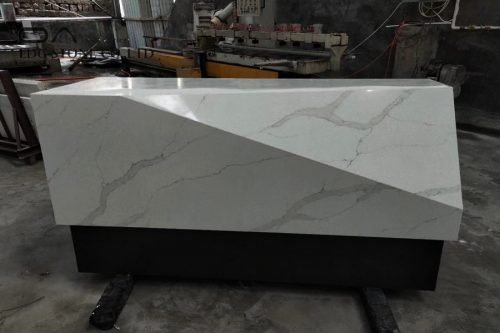
 The corian quartz countertops made of engineered quartz (not to be confused with Quartzite, another appealing natural stone used as counters) is a manmade product created mostly from natural materials. It’s made of 90% to 94% ground quartz and 6% to 10% resins and pigments that are combined into durable and nonporous slabs. The strength of quartz, even in a manufactured form, makes it naturally resistant to abrasion, scratches, dents, and even acids without the need for sealants. And the environmental impact of manufactured quartz is low: Quartz is an abundant material and the finished product is nontoxic and nonallergenic and will last a lifetime, reducing the need for replacement.
The corian quartz countertops made of engineered quartz (not to be confused with Quartzite, another appealing natural stone used as counters) is a manmade product created mostly from natural materials. It’s made of 90% to 94% ground quartz and 6% to 10% resins and pigments that are combined into durable and nonporous slabs. The strength of quartz, even in a manufactured form, makes it naturally resistant to abrasion, scratches, dents, and even acids without the need for sealants. And the environmental impact of manufactured quartz is low: Quartz is an abundant material and the finished product is nontoxic and nonallergenic and will last a lifetime, reducing the need for replacement. The concrete quartz worktop made of engineered quartz (not to be confused with Quartzite, another appealing natural stone used as counters) is a manmade product created mostly from natural materials. It’s made of 90% to 94% ground quartz and 6% to 10% resins and pigments that are combined into durable and nonporous slabs. The strength of quartz, even in a manufactured form, makes it naturally resistant to abrasion, scratches, dents, and even acids without the need for sealants. And the environmental impact of manufactured quartz is low: Quartz is an abundant material and the finished product is nontoxic and nonallergenic and will last a lifetime, reducing the need for replacement.
The concrete quartz worktop made of engineered quartz (not to be confused with Quartzite, another appealing natural stone used as counters) is a manmade product created mostly from natural materials. It’s made of 90% to 94% ground quartz and 6% to 10% resins and pigments that are combined into durable and nonporous slabs. The strength of quartz, even in a manufactured form, makes it naturally resistant to abrasion, scratches, dents, and even acids without the need for sealants. And the environmental impact of manufactured quartz is low: Quartz is an abundant material and the finished product is nontoxic and nonallergenic and will last a lifetime, reducing the need for replacement. The concrete quartz countertops made of engineered quartz (not to be confused with Quartzite, another appealing natural stone used as counters) is a manmade product created mostly from natural materials. It’s made of 90% to 94% ground quartz and 6% to 10% resins and pigments that are combined into durable and nonporous slabs. The strength of quartz, even in a manufactured form, makes it naturally resistant to abrasion, scratches, dents, and even acids without the need for sealants. And the environmental impact of manufactured quartz is low: Quartz is an abundant material and the finished product is nontoxic and nonallergenic and will last a lifetime, reducing the need for replacement.
The concrete quartz countertops made of engineered quartz (not to be confused with Quartzite, another appealing natural stone used as counters) is a manmade product created mostly from natural materials. It’s made of 90% to 94% ground quartz and 6% to 10% resins and pigments that are combined into durable and nonporous slabs. The strength of quartz, even in a manufactured form, makes it naturally resistant to abrasion, scratches, dents, and even acids without the need for sealants. And the environmental impact of manufactured quartz is low: Quartz is an abundant material and the finished product is nontoxic and nonallergenic and will last a lifetime, reducing the need for replacement. The cleaning quartz countertops made of engineered quartz (not to be confused with Quartzite, another appealing natural stone used as counters) is a manmade product created mostly from natural materials. It’s made of 90% to 94% ground quartz and 6% to 10% resins and pigments that are combined into durable and nonporous slabs. The strength of quartz, even in a manufactured form, makes it naturally resistant to abrasion, scratches, dents, and even acids without the need for sealants. And the environmental impact of manufactured quartz is low: Quartz is an abundant material and the finished product is nontoxic and nonallergenic and will last a lifetime, reducing the need for replacement.
The cleaning quartz countertops made of engineered quartz (not to be confused with Quartzite, another appealing natural stone used as counters) is a manmade product created mostly from natural materials. It’s made of 90% to 94% ground quartz and 6% to 10% resins and pigments that are combined into durable and nonporous slabs. The strength of quartz, even in a manufactured form, makes it naturally resistant to abrasion, scratches, dents, and even acids without the need for sealants. And the environmental impact of manufactured quartz is low: Quartz is an abundant material and the finished product is nontoxic and nonallergenic and will last a lifetime, reducing the need for replacement.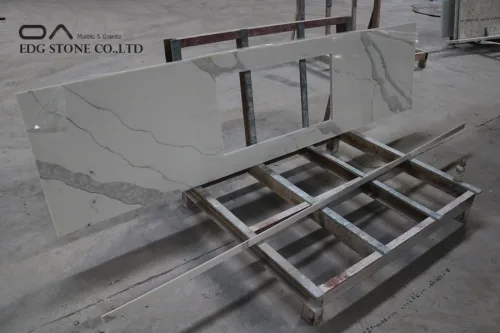
 The chipped quartz countertop made of engineered quartz (not to be confused with Quartzite, another appealing natural stone used as counters) is a manmade product created mostly from natural materials. It’s made of 90% to 94% ground quartz and 6% to 10% resins and pigments that are combined into durable and nonporous slabs. The strength of quartz, even in a manufactured form, makes it naturally resistant to abrasion, scratches, dents, and even acids without the need for sealants. And the environmental impact of manufactured quartz is low: Quartz is an abundant material and the finished product is nontoxic and nonallergenic and will last a lifetime, reducing the need for replacement.
The chipped quartz countertop made of engineered quartz (not to be confused with Quartzite, another appealing natural stone used as counters) is a manmade product created mostly from natural materials. It’s made of 90% to 94% ground quartz and 6% to 10% resins and pigments that are combined into durable and nonporous slabs. The strength of quartz, even in a manufactured form, makes it naturally resistant to abrasion, scratches, dents, and even acids without the need for sealants. And the environmental impact of manufactured quartz is low: Quartz is an abundant material and the finished product is nontoxic and nonallergenic and will last a lifetime, reducing the need for replacement. The inexpensive quartz countertops made of engineered quartz (not to be confused with Quartzite, another appealing natural stone used as counters) is manmade product created mostly from natural materials. It’s made of 90% to 94% ground quartz and 6% to 10% resins and pigments that are combined into durable and nonporous slabs. The strength of quartz, even in a manufactured form, makes it naturally resistant to abrasion, scratches, dents, and even acids without the need for sealants. And the environmental impact of manufactured quartz is low: Quartz is an abundant material and the finished product is nontoxic and nonallergenic and will last a lifetime, reducing the need for replacement.
The inexpensive quartz countertops made of engineered quartz (not to be confused with Quartzite, another appealing natural stone used as counters) is manmade product created mostly from natural materials. It’s made of 90% to 94% ground quartz and 6% to 10% resins and pigments that are combined into durable and nonporous slabs. The strength of quartz, even in a manufactured form, makes it naturally resistant to abrasion, scratches, dents, and even acids without the need for sealants. And the environmental impact of manufactured quartz is low: Quartz is an abundant material and the finished product is nontoxic and nonallergenic and will last a lifetime, reducing the need for replacement.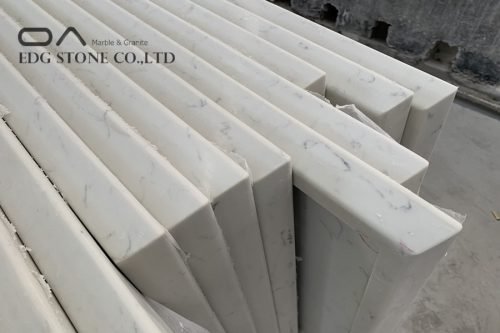
 The China quartz countertop fabricators made of engineered quartz (not to be confused with Quartzite, another appealing natural stone used as counters) is a manmade product created mostly from natural materials. It’s made of 90% to 94% ground quartz and 6% to 10% resins and pigments that are combined into durable and nonporous slabs. The strength of quartz, even in a manufactured form, makes it naturally resistant to abrasion, scratches, dents, and even acids without the need for sealants. And the environmental impact of manufactured quartz is low: Quartz is an abundant material and the finished product is nontoxic and nonallergenic and will last a lifetime, reducing the need for replacement.
The China quartz countertop fabricators made of engineered quartz (not to be confused with Quartzite, another appealing natural stone used as counters) is a manmade product created mostly from natural materials. It’s made of 90% to 94% ground quartz and 6% to 10% resins and pigments that are combined into durable and nonporous slabs. The strength of quartz, even in a manufactured form, makes it naturally resistant to abrasion, scratches, dents, and even acids without the need for sealants. And the environmental impact of manufactured quartz is low: Quartz is an abundant material and the finished product is nontoxic and nonallergenic and will last a lifetime, reducing the need for replacement.


